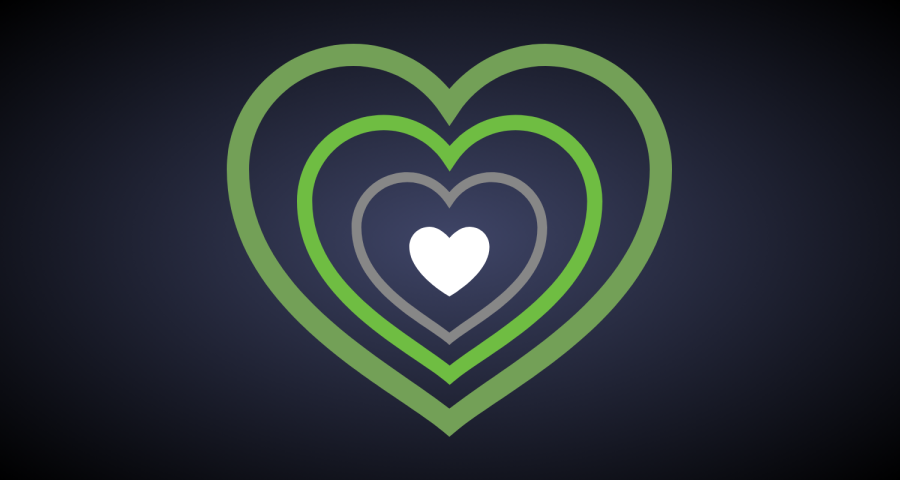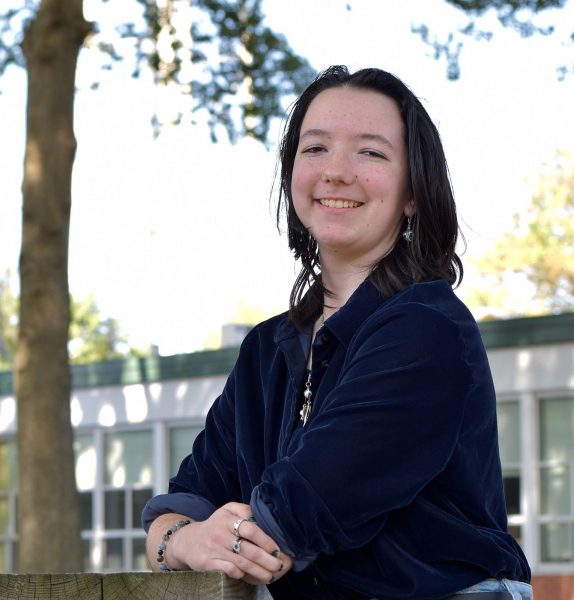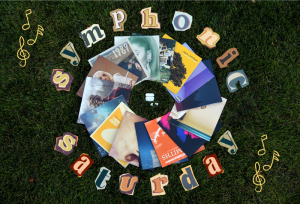The Hierarchy of Love
February 14, 2023
There’s something about soulmates that’s always bothered me.
Soulmates, twin-flames, red flags, green flags—we hear about it constantly. TikToks of dating advice go viral daily, “shipping discourse” plagues nearly every social media. It’s an idea that pervades the entirety of our lives, both online and offline.
It’s not as if I’m against the idea of love, of partnership, or even the belief in a predetermined destiny. No, it’s the idea of “true love” that gets me.
“True love,” it’s called—as if the rest of your love, that you’ve both given and received, is somehow less true, comparatively insignificant. As if the only way one can truly, fully love is through a romantic relationship.
Isn’t that a little strange?
It’s not an idea we all independently decided, either. It’s the kind of thing that’s been instilled in us since birth.
When we were young, people taunted us about who our crushes were, played games about who we wanted to date and marry. When we’re older, our families will undoubtedly pepper us with questions about when we’ll tie the knot.
In the movies, our leading heroes are almost never left unpartnered. The lyrics of our most popular songs are filled with constant talk of love and heartbreak.
Even in the advertisements and products we consume, this model of love is promoted. What else is the entire holiday of Valentine’s Day about?
It is everywhere.
We are constantly being sold an ideal of how we should experience and express our internal, personal feelings of love and affection. In the hierarchy of love, we must place romantic relationships at the top.
What happens to our friends, then, to our families? What happens to us when we are constantly mentally ranking our relationships?
It is not impossible to maintain a balance within this model, however, with our culture so centered on romance, it’s easy to get wrapped up in it all. It’s not hard to feel as though it’s the only thing that matters.
In actuality, it’s far from it. Friendships and platonic relationships are incredibly important to a happy and healthy life. We need friends in our lives.
As humans, we are built for community. Having a network of people around us allows us to find strength and comfort from several sources, as well as being able to be surrounded by different perspectives.
Perhaps it’s time to diversify and expand our sense of what relationships are important, letting ourselves build communities rather than just partnerships. In our lives, love can just be love, without definition and inherent values.
After all, non-traditional expressions of love and relationships are not a new phenomenon, especially within cultures such as the culture of the LGBTQIA+ community.
To outsiders, being LGBT might seem like nothing more than being attracted to a different gender than the norm. Look closer, however, and you’ll see it’s all much more complicated than that.
The marked difference between yourself and the way “love” is viewed by the world—it changes how you think. It causes you to reconceptualize who you are and what you actually desire.
While the ordeal is terrifying, it can be freeing. You are given the opportunity to live and love on your own terms.
With this freedom, many reshape their relationships, creating found families and communities, separate to the ones assigned to them. Through this, they entirely restructure how they express their love and connections to those close to them.
Regardless of sexuality, we can all learn from this idea, from this journey towards self discovery. We have the ability to reflect and question, the ability to go against the expectations and build the lives and relationships we want to have.
For me, this means finding my community through my platonic relationships. The relationships I have with others, while none are romantic, are incredibly valuable to me. Even my acquaintances, people I will likely never talk to after high school, are significant.
Perhaps for you it will be something different. Maybe you still want to focus on a single partner.
I simply ask you to wonder: What would my relationships look like if I was never told how they were supposed to look? And, most importantly, would you then be happier than you are now?








